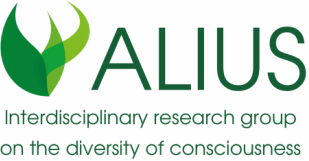Somatic Cultures and ConsciousnessFrom Event Cognition to Self-Transformation
Organizers: Maddalena Canna (Chair and Presenter) & Rebecca Seligman
Rebecca Seligman (discussant)/Northwestern University Saturday 23 November
4:15 PM - 6:00 PM Vancouver CC WEST, Room 212 Vancouver, Canada Abstract: Recent scholarly explorations of embodiment have explored the multiple ways in which cultural meaning and somatic experiences are intermingled through complex loops of influence between mind and body. This is particularly evident in the case of somatic cultures, i.e. contexts where the shaping, conditioning and transforming of participants’ bodies is pivotal for developing a distinctive sense of Self integrated into a specific community. Whether associations of believers, clubs of sports practitioners, groups of meditators, or communities defined by specific sexual orientations, shared traumas and pathologies, or practices of consumption and ascetism, somatic cultures are places where transforming one’s body means forging distinctive self-consciousnesses and selective socialities. In this panel we propose to explore somatic enculturation by integrating approaches from anthropology, transcultural psychiatry, neurocognitive and biological sciences. In particular, we will focus on the articulation between:1) somatic events, i.e. discrete episodes marking the integration of an individual into a community, and 2) self-transformation, i.e. the broader dynamics of personal reconfiguration and re-socialization within such communities. If it is intuitive that somatic events represent part of the overall process of individual self-transformation, the ways in which single episodes become transformative are highly variable. Religious initiation, for example, is by antonomasia the marking event where individual bodies and Selves are shaped in order to build a community of adepts. Nevertheless, the relationships between discrete episodes and progressive transformations are manifold and multi-layered, requiring broader empirical comparison and theoretical conceptualization. Event-cognition, indeed, entails distinct appraisal processes depending on how the event is related to the overall process. Somatic events can be involuntary, as the sudden embodied insight propelling a skeptic to join a community of believers, as well as strongly desired but not predictable, as the enlightenment sought by many meditators. They can be unique or reiterative, as the tortuous trajectories of fights allowing a professional boxer to be recognized as such. They can mark the body permanently, as circumcision, transitorily, as ritual shaving, as well as semi-permanently, as the wearing of enslavement piercings in BDSM practices. Beyond the wide array of varieties, what is at stake, in our reflection, is explaining how bodily experiences and Self transformation are intermingled and mutually shaped through shared meaningful experiences. We will focus, in particular, on bottom-up processes, i.e. the ways in which bodily experiences transform the Self, whether inadvertently or by prompting the adoption of specific bodily practices, as well as on top-down processes, i.e. the ways in which meaningful bodily experiences transform human biology, whether transitorily or permanently, including trans-generational modifications (e.g. epigenetics). By adopting a bio-looping approach, we will explore the multiple ways in which top-down and bottom-up processes are co-dependent. Exploring somatic enculturation, thus, entails explaining how societies shape minds and bodies by associating salient facts (events) with specific forms of being (selves). Intrinsically linked to personal ontologies and grounded in the plasticity of human biology, somatic cultures are privileged sites for observation of the perpetual co-construction between individuals and their being-in-the-world.
|
